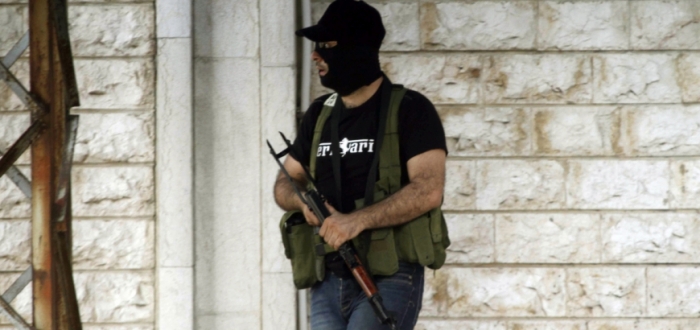The Lebanese Hezbollah militia has exploited its broad influence in Syria – granted by the Assad regime in its quest for support in the fight against opposition forces – with the militia becoming top decision-maker in some Syrian areas, capable of challenging the regime’s commands, especially in areas like the countryside of Homs and Damascus where its influence is strongest.
Hezbollah’s presence in the western Homs countryside has turned from “a blessing to a curse,” according to some residents, as a result of the abuses carried out by the militia against regime loyalists and opposition members alike – abuses some residents see as being no less brutal than those perpetrated by regime forces, especially with regard to arrest campaigns and the disappearance of detainees in secret prisons.
The militia is heavily deployed in Shiite villages in the Homs countryside, and controls a number of secret prisons brimming with mysteries about the abuses committed within them. Al-Souria Net learned from witness testimonies made to our correspondent in Homs, Yarib al-Dali, that the most prominent of these secret prisons is a facility named the “Yellow Hole” in the Tel Kalakh area. Others call it “The Party (of God’s) Prison”, in reference to Hezbollah’s literal translation from Arabic.
Local residents told Al-Souria Net that these prisons are primarily dedicated to opponents of the Assad regime, and to those who protest the militia’s presence, whether opposition or loyalist. They said that the militia’s behavior had created enmities between the Alawite and Shiite villages in the Homs countryside, especially as the militia considers the areas under its control to be its property, requiring a permit for entry.
The danger of the secret prison lies in that those who enter are immediately considered missing, since the militia refuses to submit to pressure to release any prisoner. “Abu Ammar,” an opposition activist who was living in the Homs countryside before moving to Lebanon, said prisoners in the “Yellow Hole” face major charges and not even the head of Bashar al-Assad’s regime can intercede to release them.
Abu Ammar had an experience with the secret Hezbollah prisons, adding that his brother was arrested by pro-regime shabeeha in loyalist villages because of his opposition activities. They took his brother to a secret prison in the village of Fahel and after interrogating him and determining his family had no connection to the Free Syrian Army, they released him in exchange for 3 million Syrian pounds.
Abu Ammar said that two months after his brother’s release, he (Abu Ammar) appeared on a television channel talking about the abuses and practices of Hezbollah that he saw in Qusair. A week later Hezbollah raided the village where Abu Ammar’s family lives and rearrested his brother, while his fate remained unknown for four months.
Abu Ammar said that after searching, his family learned that their son was in the “Yellow Hole” in Tel Kalakh. He said: “We tried every means of releasing my brother. We were ready to pay any amount, but the militia refused to let him go.”
“Figures in the Assad regime from the National Defense Forces militia and security officers told the family there was no hope for his release,” adding: “Even one of the officers told my family he had a relative in the prison and he couldn’t get him out.”
Abu Ammar refused to disclose the fate of his brother in order to protect his safety and not subject the family to danger.
This article was translated and edited by The Syrian Observer. Responsibility for the information and views set out in this article lies entirely with the author.


